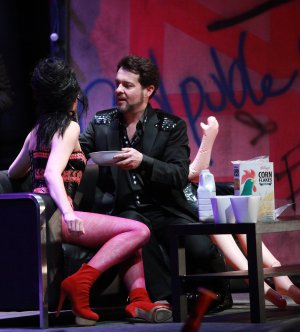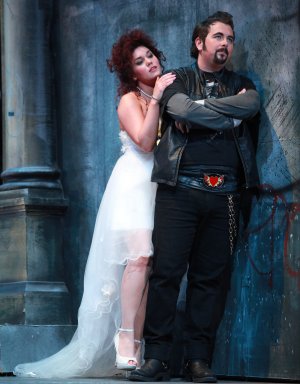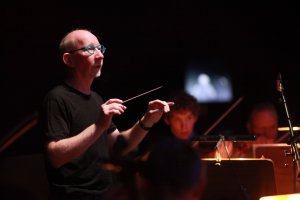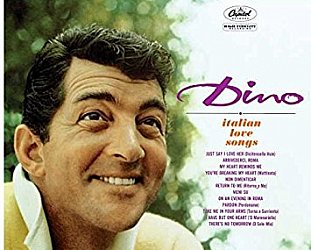Graham Reid | | 4 min read

It was Mae West who said, “Keep a diary and perhaps some day it will keep you”.
This presumes you've had an interesting life, but former Rolling Stone bassist Bill Wyman assiduously kept diaries so when he wrote his autobiography Stone Alone back in 1990 he had hard facts as well as memories to draw on.
Rock people and Stones fans didn't much rate the book because it wasn't especially salacious and drug-riddled, but it was closer to the truth about how mundane life could be inside a band that grabbed headlines but also spent a lot of time stuck in hotel rooms.
Something titillating did leap out however, when one night in '65 and in another hotel they counted up the number of girls they'd sex with since the band started two years previous: Brian Jones came up with 130, Mick Jagger about 30, Keith Richards just six and Charlie Watts who was married had been entirely faithful to his wife.
Wyman – married with a child – had an exact figure because he'd kept diaries: 278.
It's always the quiet ones, right?
 Well, not always – because in
Mozart's opera Don Giovanni the sexually voracious central figure
has, by the account of his manservant Leporello at the start of the
story, already enjoyed 640 women and girls in Italy, 231 in Germany,
100 in France, 91 in Turkey, and in Spain a tidy 1003.
Well, not always – because in
Mozart's opera Don Giovanni the sexually voracious central figure
has, by the account of his manservant Leporello at the start of the
story, already enjoyed 640 women and girls in Italy, 231 in Germany,
100 in France, 91 in Turkey, and in Spain a tidy 1003.
Don Giovanni – based on the notorious Don Juan and perhaps Casanova – sounds like a man with persistent priapism and if he's not headed to Hell or the psychiatrist's office he's most certainly going to be hospitalised for a social disease at some point.
But Mozart's opera is a semi-serious drama . . . although we know the Don will obviously get his comeuppance.
Today it is hard to take the scorned women as seriously as maybe they once were -- with the exception of Donna Elvira who is doggedly pursuing this roue for vengeance – as they seem feather-headed, especially Zerlina who is in danger of being seduced while still in her bridal gown.
Don Giovanni is an opera with some familiar plot devices: the man and his manservant; scorned lovers; angry rivals; a murder to be avenged; disguises and the wages of sin. And the price paid by those who refuse to repent.
To accommodate all of that takes some telling and it is a long work, but it can also be thrown into the 21st century without too much difficulty as the NZ Opera production by Sara Brodie proves.
With inspired staging, the locations where Don Giovanni acts out his predatory sexual desires are familiar enough. Here in the graffiti-scrawled and rundown back streets of a Spanish city (Madrid? Barcelona? Take your pick) is Libertinos nightclub with its red rope and A-listers, trashy clubbers taking selfies, CCTV, the hen party and the wide-boys . . .
 And of course the easy prey for Don
Giovanni in Donna Anna, the naïve daughter of the Commendatore. But
then it all goes horribly wrong when her father shows up, there is a
fight and Giovanni kills him.
And of course the easy prey for Don
Giovanni in Donna Anna, the naïve daughter of the Commendatore. But
then it all goes horribly wrong when her father shows up, there is a
fight and Giovanni kills him.
Revenge – in the form of Donna Anna and her fiance Don Ottavio – enters Don Giovanni's world, compounded by the irate husband of the newly wed Zerlina whom he has also tried to seduce.
While the narrative is given its due in this engaging, intermittently humorous and steadily paced production – where melodrama occasionally strains to be elevated to actual drama – the singing can sometimes be short on dynamics.
 As Don Giovanni Mark Stone initially
struggles to make himself a credible presence of sexual power and
lust (that is resolved in the declamatory dialogues with Warwick
Fyfe's Leporello) and Jaewoo Kim as Don Ottavio brings little
gravitas and righteous anger to an important pivotal part.
As Don Giovanni Mark Stone initially
struggles to make himself a credible presence of sexual power and
lust (that is resolved in the declamatory dialogues with Warwick
Fyfe's Leporello) and Jaewoo Kim as Don Ottavio brings little
gravitas and righteous anger to an important pivotal part.
But equally there are standout performances.
Lisa Harper-Brown is excellent as Donna Anna and if a little weak early on nails the terrific Non mi dir/Tell me not I am cruel; Fyfe as Leporello brings envy and anger is the right measure; and Jud Arthur as Commendatore (only around long enough to get killed at the start) makes a powerful impression when he returns from beyond in the closing overs and unleashes vocal and well as retributive power.
The duet between Zerlina and her husband Masetto (a strong and bullish performance by Robert Tucker) on La ci darem la mano/Give me your hand is a sheer delight.
 The performance of the Auckland
Philharmonia Orchestra under Wyn Davies is nuanced,
John Verryt's simple but adaptable revolving stage is cleverly
realised.
The performance of the Auckland
Philharmonia Orchestra under Wyn Davies is nuanced,
John Verryt's simple but adaptable revolving stage is cleverly
realised.
So this – with some reservations about the vocal dynamics and the serially dramatic arc which strains for effect at times – is a fine production of Don Giovanni, but perhaps not one to recommend to Bill Wyman.
The unexpected end of Don Giovanni which director Brodie has in store for the Dirty Don would send Womanising Wyman straight to the confessional.
Don Giovanni presented by NZ Opera with the Auckland Philharmonia is at the Aotea Ctre, Auckland until September 28 and at the St James Theatre, Wellington from October 11. See here for specific dates, times and booking details.
Photographs above by Neil Mackenzie, used with permission.







post a comment